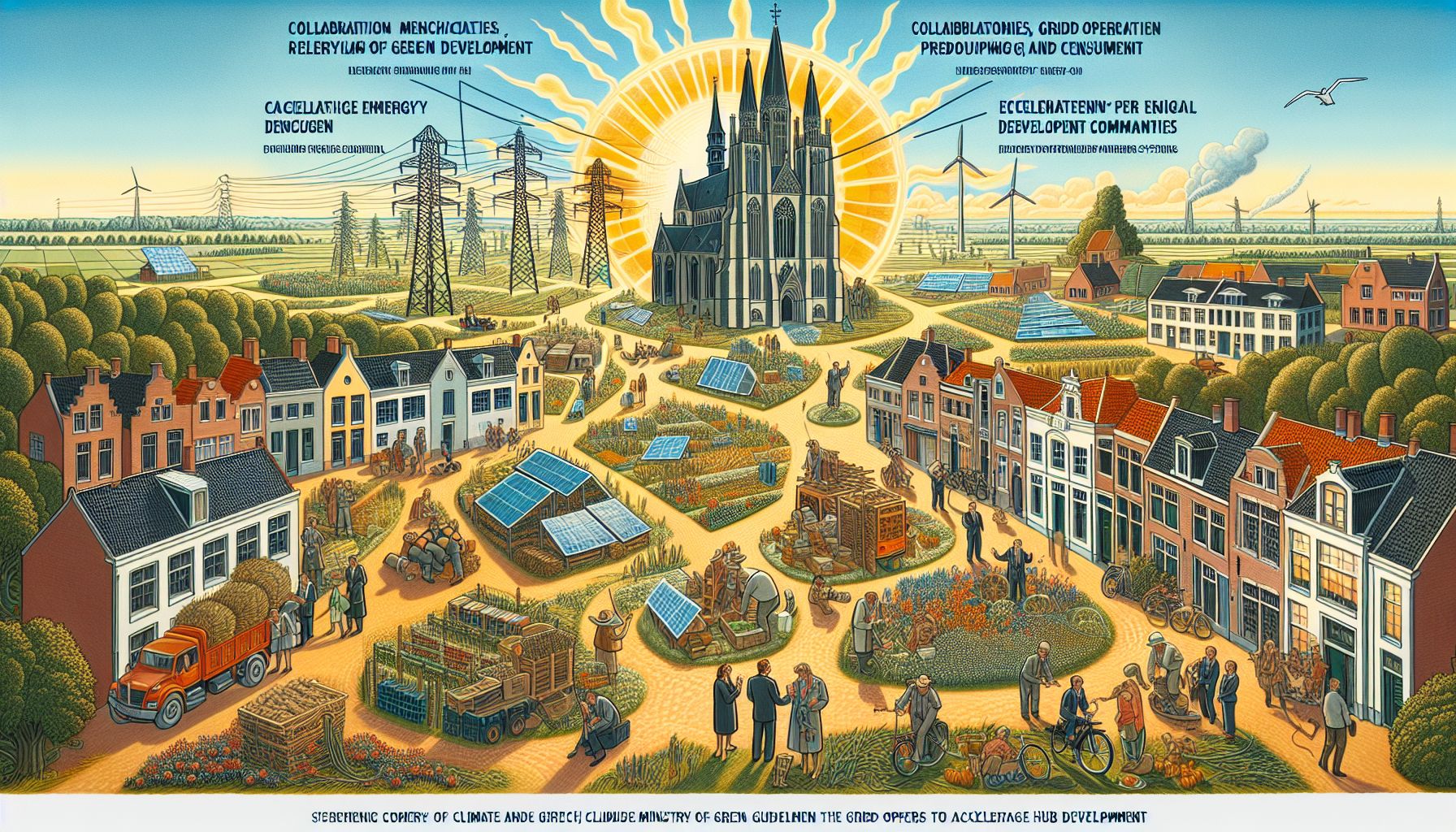Dutch Government Boosts Energy Hub Development with New Guidelines

Netherlands, Friday, 11 October 2024.
The Dutch Ministry of Climate and Green Growth has introduced a guideline to accelerate energy hub development nationwide. This initiative aims to foster collaboration between municipalities, grid operators, and regional development companies, streamlining the process of creating local energy systems that efficiently manage renewable energy production and consumption.
Strategic Guidelines for Energy Hubs
The initiative, presented as part of the Stimuleringsprogramma Energiehubs, offers provincial authorities specific tools to coordinate effectively with local governments, network operators, and regional development agencies. These guidelines are designed to establish a cooperative framework that simplifies operational agreements, thereby expediting the establishment of energy hubs across various regions in the Netherlands. The comprehensive strategy includes criteria for supporting energy initiatives and organizing collaboration among all stakeholders involved[1].
Financial Backing and Regional Focus
To support this ambitious initiative, the Dutch government has allocated €166 million, with 85% earmarked for regional application aimed at bolstering the development capacity of energy hubs. The remaining 15% is designated for knowledge sharing and enhancing national development opportunities. This funding is expected to accelerate the implementation of energy hubs, which integrate local renewable energy generation with consumption, thereby alleviating the pressure on the national electricity grid[1].
Collaborative Efforts Across Organizations
The guidelines were developed in collaboration with the Ministry of Climate and Green Growth, Interprovincial Consultation (IPO), the Association of Netherlands Municipalities (VNG), Netbeheer Nederland (NBNL), and the Regional Development Companies (ROM-Nederland). This concerted effort highlights a shared commitment to developing a more resilient and sustainable energy system, aligning with Europe’s goal of achieving climate neutrality by 2050. Currently, several energy hubs are in various stages of development, with a few already entering the realization phase[1].
Upcoming Smart Energy Hubs Conference
The Smart Energy Hubs Conference, scheduled for November 20, 2024, in Enschede, serves as a platform for discussion and knowledge exchange on the development of energy hubs. Organized by Saxion University of Applied Sciences and the University of Twente, the event will feature keynote speakers such as Pavol Bauer from TU Delft and Jorian Bakker from the Dutch Ministry, focusing on the strategic importance of energy hubs in the energy transition[2].
The Broader Context of Renewable Energy
This initiative coincides with significant milestones in the Netherlands’ energy transition, where renewable energy sources surpassed fossil fuels for electricity production for the first time in 2024. The country’s renewable energy output reached 32.3 billion kWh, accounting for 53% of total electricity production. This shift is supported by government subsidies and significant developments in offshore wind farms, which underline the nation’s commitment to increasing renewable energy capacity and reducing reliance on fossil fuels[3].

